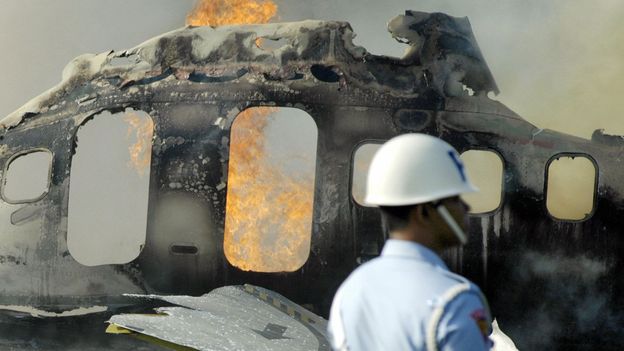livingston
20×102mm Vulcan
What Not to Do in a Disaster
“Survival training isn’t so much about training people what to do – you’re mostly training them not to do certain things that they would normally think to do,” says John Leach, a psychologist at the University of Portsmouth who survived the King’s Cross fire disaster in 1987. He estimates that in a crisis, 80-90 percent of people respond inappropriately.
Footage of the Japanese earthquake in 2011 showed people risking their lives while rushing to save bottles of alcohol from smashing in a supermarket. And when a plane caught fire at an airport in Denver earlier this year, evacuating passengers lingered by the plane to watch the flames and take selfies.
Intelligence doesn’t come into it – the brain fog that descends in emergency situations is reassuringly even-handed. Back in 2001, a lecturer at the University of Cambridge was kayaking in the rough seas off the Isle of Wight when he capsized.
Though he had a mobile phone on board, he clung helplessly to the upside-down boat for more than 20 minutes before he remembered. When he finally retrieved it, first he called his sister in Cambridge – then his father who was more than 5,000km (3,436 miles) away in Dubai. He was eventually rescued when his clear-headed relatives alerted the Coast Guard.
So, if faced with a life-threatening scenario, what behaviours should you do your best to avoid?

 getpocket.com
getpocket.com
“Survival training isn’t so much about training people what to do – you’re mostly training them not to do certain things that they would normally think to do,” says John Leach, a psychologist at the University of Portsmouth who survived the King’s Cross fire disaster in 1987. He estimates that in a crisis, 80-90 percent of people respond inappropriately.
Footage of the Japanese earthquake in 2011 showed people risking their lives while rushing to save bottles of alcohol from smashing in a supermarket. And when a plane caught fire at an airport in Denver earlier this year, evacuating passengers lingered by the plane to watch the flames and take selfies.
Intelligence doesn’t come into it – the brain fog that descends in emergency situations is reassuringly even-handed. Back in 2001, a lecturer at the University of Cambridge was kayaking in the rough seas off the Isle of Wight when he capsized.
Though he had a mobile phone on board, he clung helplessly to the upside-down boat for more than 20 minutes before he remembered. When he finally retrieved it, first he called his sister in Cambridge – then his father who was more than 5,000km (3,436 miles) away in Dubai. He was eventually rescued when his clear-headed relatives alerted the Coast Guard.
So, if faced with a life-threatening scenario, what behaviours should you do your best to avoid?

What not to do in a disaster
Survival is less about heroic actions than avoiding mindless mistakes.





